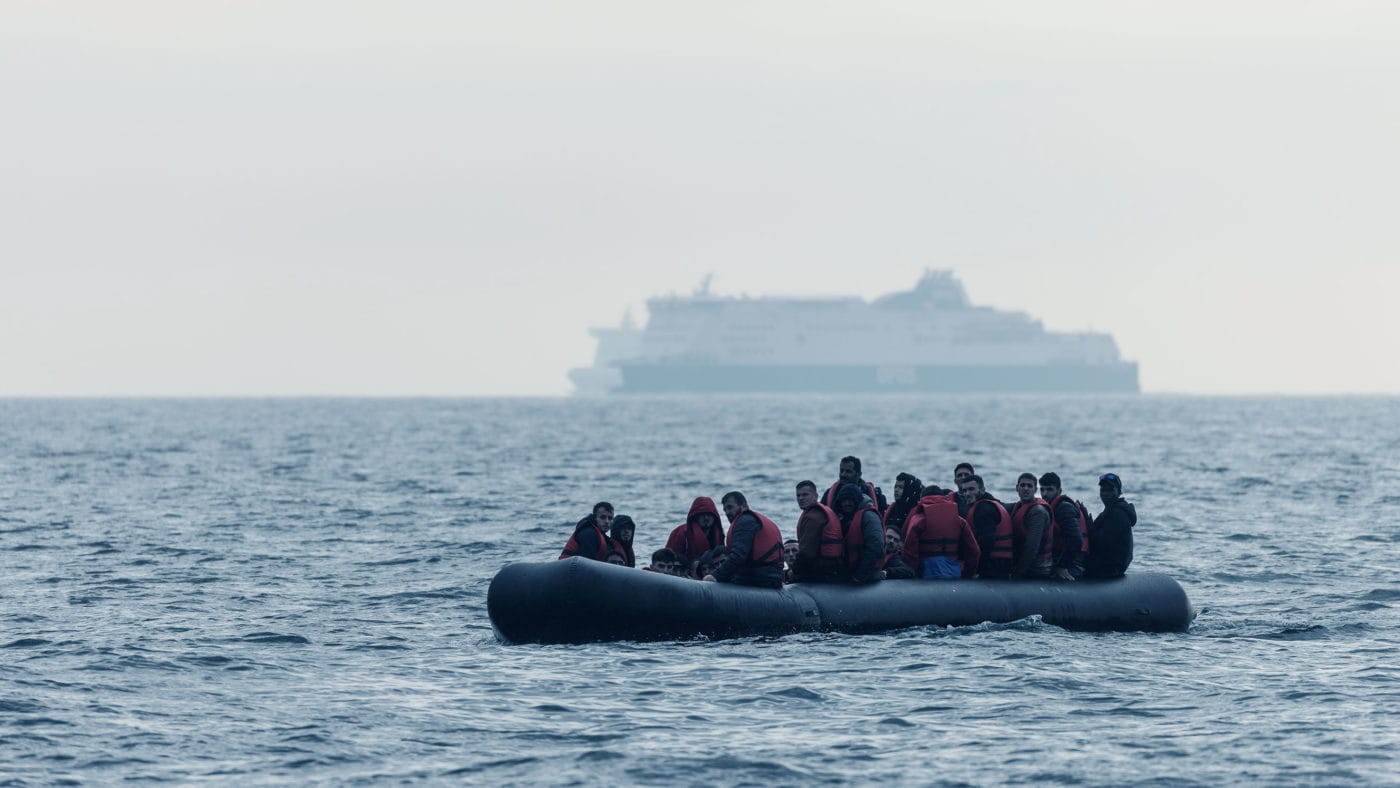When is a refugee not a refugee?
That’s the important question that has been raised by a recent leaked military intelligence report on the illegal Channel boat crossings. According to the document, which found its way to the Mail on Sunday, four in 10 of the 2,863 migrants who arrived on small boats between June 1 and July 12 were Albanian. At 1,075 they were by far the largest national group among those who reached the UK – ahead of Iranians (13% of the total), Afghans (12.7%), Iraqis (7.6%), Syrians (5.7%) and Eritreans (5.7%).
Now, every asylum case must obviously be considered on its own merits, but the fact so many seem to be coming from a country which is not at war, and has not been for some 25 years, does pose some questions about the effectiveness of our immigration and asylum systems. Likewise, it suggests that a sizeable proportion of those arriving on these shores are not really ‘refugees’ in the sense most people would understand the word, but economic migrants.
There’s no doubt at all that many Albanians experience serious economic hardship – especially in isolated communities in the north of the country. However, it remains a relatively peaceful country, especially compared to some of the other conflict-ridden states mentioned in the report. Indeed, Albania has not experienced serious internal conflict since a six-month civil war in 1997. Sparked by the failure of pyramid schemes as the ex-communist country transitioned towards a market economy, the government was toppled and more than 2,000 people were killed.
And although Albania does have serious problems with institutional corruption, organised crime and illiberal cultural practices associated with so-called ‘honour codes’, Freedom House concluded that its elections are both competitive, and in the case of recent parliamentary race ‘generally well administered’. Freedom House is also of the view that religious freedom and freedom of assembly is generally respected.
It is not fair to say, then, that those arriving here are necessarily fleeing rampant violence and persecution. Charities representing refugees have said, however, that some Albanians are likely to be victims of debt bondage, coercion and people-trafficking – all of which law enforcement not just here, but across Europe, should of course be alert to.
Nevertheless, it’s clear that when it comes to state-sponsored violence or group-based persecution, Albania is nothing like Syria, Afghanistan or Iran. We can quantify that too: while Albania scores 67 out of 100 on the Freedom House’s Global Freedom index (which focuses on political rights and civil liberties), Afghanistan and Iran only score 10 and 14 out of 100 respectively. It follows that we cannot talk about people arriving in illegal boat crossings as if they are a homogenous group, given the stark disparity in the state of their countries of origin.
The broader policy question is what should be prioritised by our asylum system, which currently operates on a Darwinian ‘survival of the fittest’ arrangement – dominated by largely able-bodied young men who are able to take on physically demanding journeys, facilitated by grotesque people-smuggling gangs.
This dysfunctionality at the heart of our asylum system is fundamentally unfair on particular groups that continue to be seriously at risk of violence and persecution in their homelands. While many of the illegal Channel migrants do come from conflict-ridden, unstable countries, they may not necessarily belong to the ethnic and religious groups most at risk of persecution. For a country with an established church and a rich history of rehoming the world’s most persecuted peoples, the UK has a particularly woeful record of providing sanctuary for Christian minorities that have experienced astonishing levels of jihadist violence. Our government should also be unapologetic in prioritising women and girls most at risk of religiously- and culturally-driven gender-based violence.
More controversially, we should look at the degree to which newcomers can integrate into British liberal democratic norms. Take groups such as Afghanistan’s Hazara minority, made up predominantly of Shia Muslims who have historically valued Western-style education and suffered brutally at the hands of the Taliban. It is fair to say that the average anti-Islamist Shia Hazara will be better able to integrate into the economic, social and cultural spheres of British life than other ethno-religious groups.
The debate on what our asylum system should prioritise is not necessarily an easy one – it requires a certain level of hard-headedness that balances benevolence and pragmatism. At the moment, though, we are being neither benevolent, nor pragmatic and the public are rightly dismayed at a system which seems to do nothing to differentiate between refugees and economic migrants.
Failure to sort this out means more people illegally entering the UK for economic reasons, corroding faith in the system and leaving those at risk of genuine persecution by the wayside.
Click here to subscribe to our daily briefing – the best pieces from CapX and across the web.
CapX depends on the generosity of its readers. If you value what we do, please consider making a donation.


